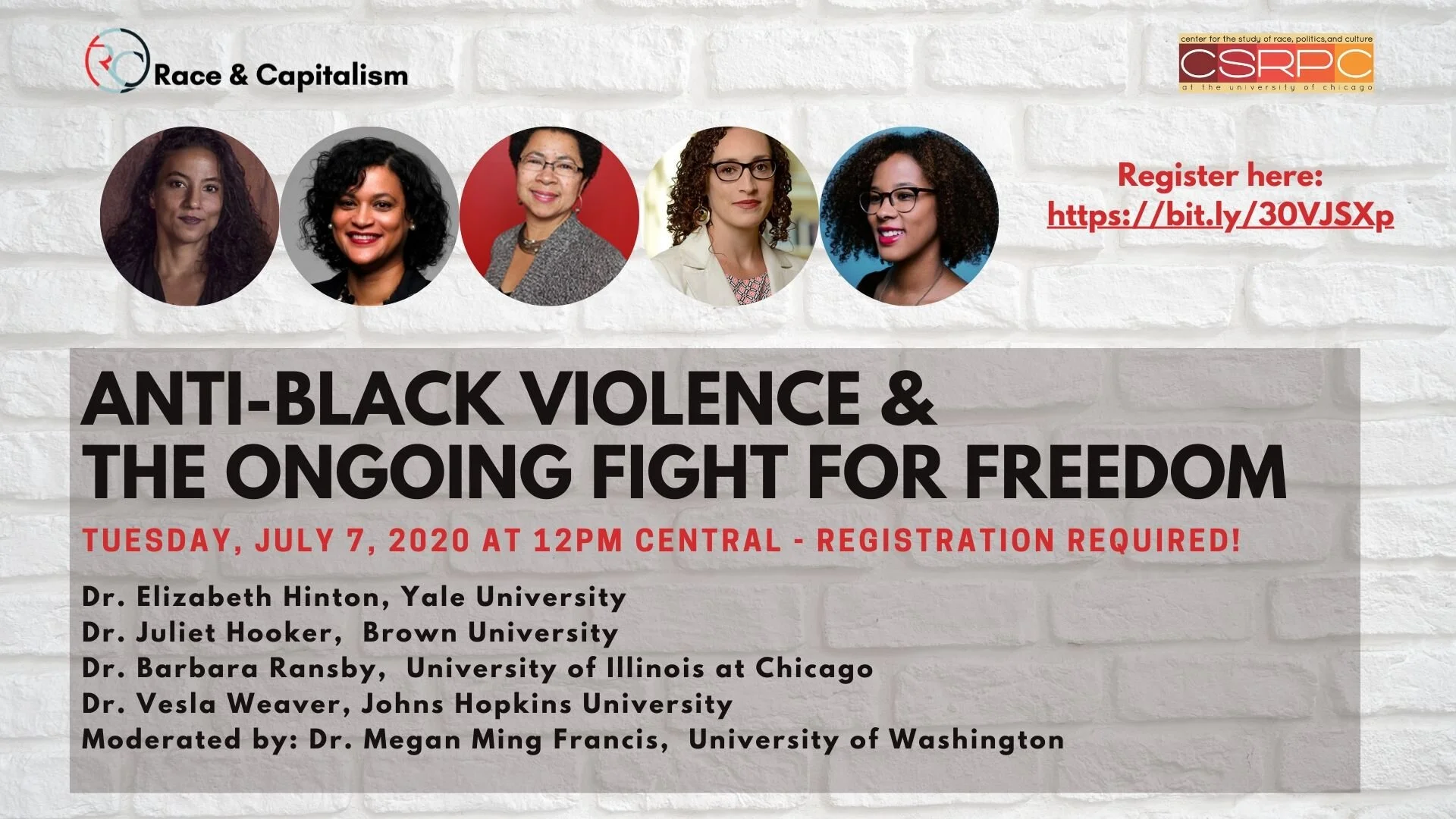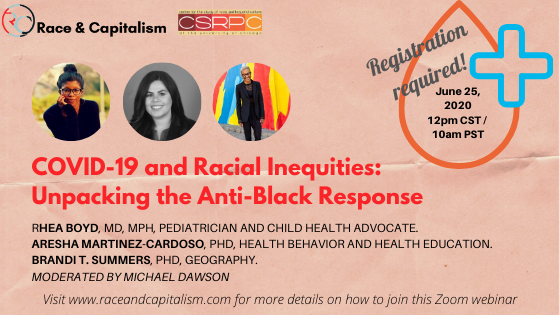
Webinar: Race and Capitalism
There has been a recent resurgence of debates about “racial capitalism,” and, more broadly, a revival of the conjunction of anti-racist and anti-capitalist critiques. This event will bring together four preeminent scholars whose work engages the question of how processes of racialization have shaped capitalist social orders both in Europe and transnationally, and how capitalist social structures have, in turn, shaped processes of racialization.
Panelists :
Jean Batou is a professor of Contemporary International History at the University of Lausanne, Switzerland. He is the author of numerous publications on the history of the globalization and social movements. He is one of the organizers of the French language network “Penser l’emancipation” (Emancipatory Thought). He is the editor of the Swiss bimonthly newspaper solidaritiéS (http://www.solidarites.ch/journal/).
Pepijn Brandon is assistant professor at the Vrije Universiteit Amsterdam and senior researcher at the International Institute of Social History. His work focuses on the history of capitalism, war and economic development, and slavery. His dissertation, published in 2015 as War, Capital, and the Dutch State (1588-1795) (Leiden: Brill 2015; paperback edition Chicago: Haymarket Books 2017) was awarded 'Best dissertation of the year 2013' by the University of Amsterdam's Institute for Culture and History and won the D.J. Veegens Award of the Royal Holland Society of Sciences and Humanities.
Emily Katzenstein is a Junior Research Fellow in Politics at St. John’s College, University of Oxford. Prior to coming to the University of Oxford, Emily was the Race and Capitalism Projects’ Predoctoral Fellow at the University of Chicago. Her current book project traces the emergence and legacy of an actuarial conception of justice in insurance and credit markets in the late 19th and early 20th century, and its implications for conceptions of racial justice in the present. Her research interests include critical theory, the history of black political thought in the nineteenth and twentieth century, theories of racial capitalism and normative theories of economic and racial justice.
Vanessa Thompson is a research associate at the department of comparative cultural and social anthropology at the Europa Universität Viadrina Frankfurt. Her dissertation Solidarities in Black. Anti-Black Racism and the Struggle beyond Recognition in Paris was awarded with the WISAG-Price for the best PhD thesis in the Social Sciences and Humanities at Goethe University Frankfurt/Main, 2017. Vanessa Thompson’s research interests include : Theories on Racism and Critical Race Theory, Black Diaspora Studies with a particular focus on Black Europe, Feminist Postcolonial Studies.
Discussants :
Michael Dawson is is the John D. MacArthur Professor of Political Science at the University of Chicago. He has directed numerous public opinion studies that focus on race and public opinion. His research interests include black political behavior and public opinion, political economy, and black political ideology. More recently he has combined his quantitative work with work in political theory. Michael Dawson is the co-director of the Race and Capitalism Project at the University of Chicago (https://www.raceandcapitalism.com/).
Catherine Hall is Emerita Professor of Modern British Social and Cultural History at University College London. Her research focuses on re-thinking the relation between Britain and its empire in the nineteenth and twentieth centuries. Catherine Hall was Principal Investigator of the ESRC-funded project Legacies of British Slave Ownership (2004-12), and of the new ESRC/AHRC funded project 'The Structure and Significance of British-Caribbean Slave-Ownership, 1763-1833' (2013-16). She is now Chair Emerita of the Centre for the Study of the Legacies of British Slave-ownership.
This webinar will be moderated by Michael Dawson. This virtual panel discussion is co-organized by the University of Chicago Center in Paris and The Race and Capitalism Project at the University of Chicago in partnership with the Center fo Study of Race, Politics and Culture at the University of Chicago.




![globalcrowds_Many_digi-01[1].png](https://images.squarespace-cdn.com/content/v1/5cfeb32052092300010834d3/1571848510049-RWK6QJ99P6034Q1YZIA7/globalcrowds_Many_digi-01%5B1%5D.png)